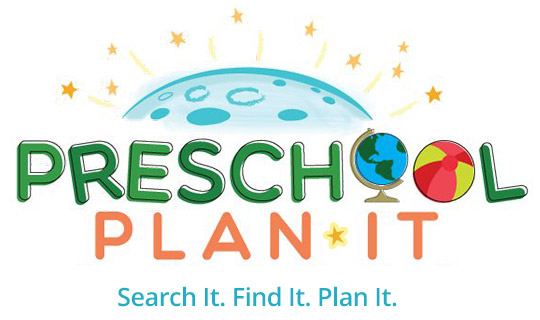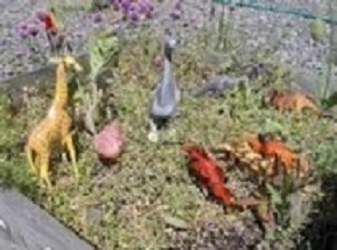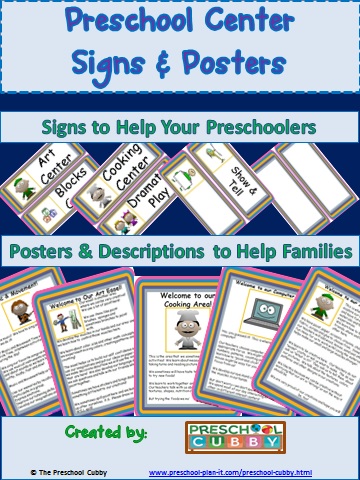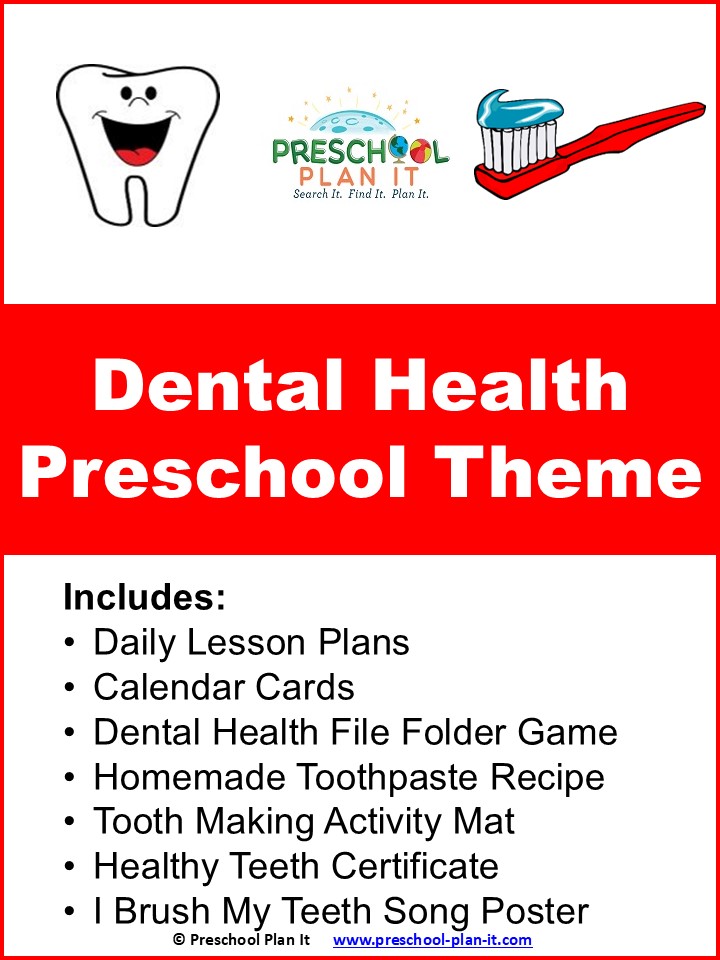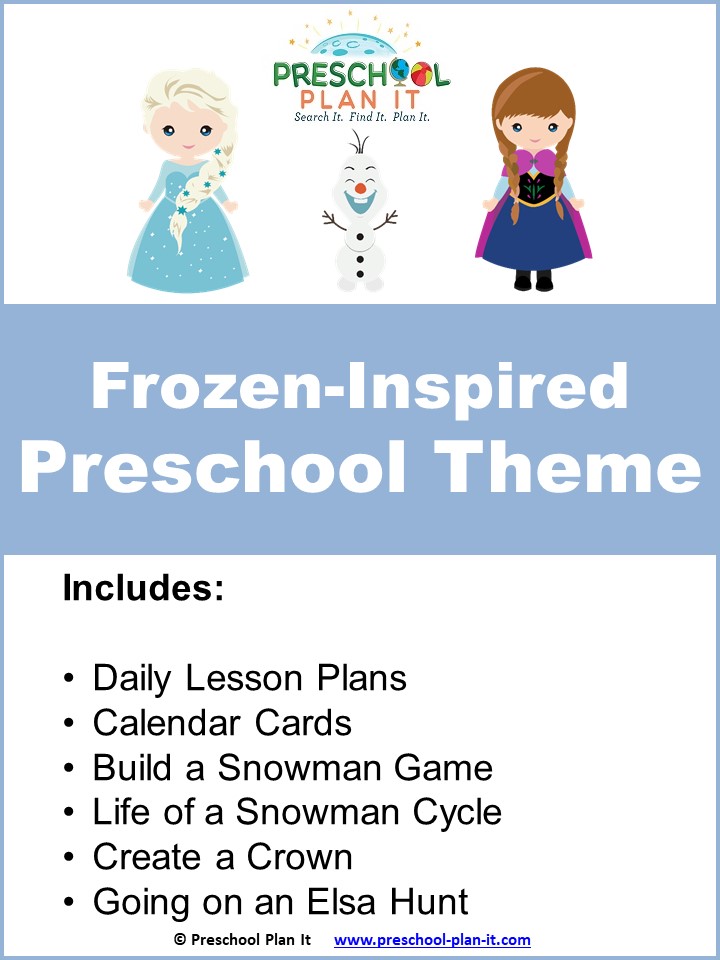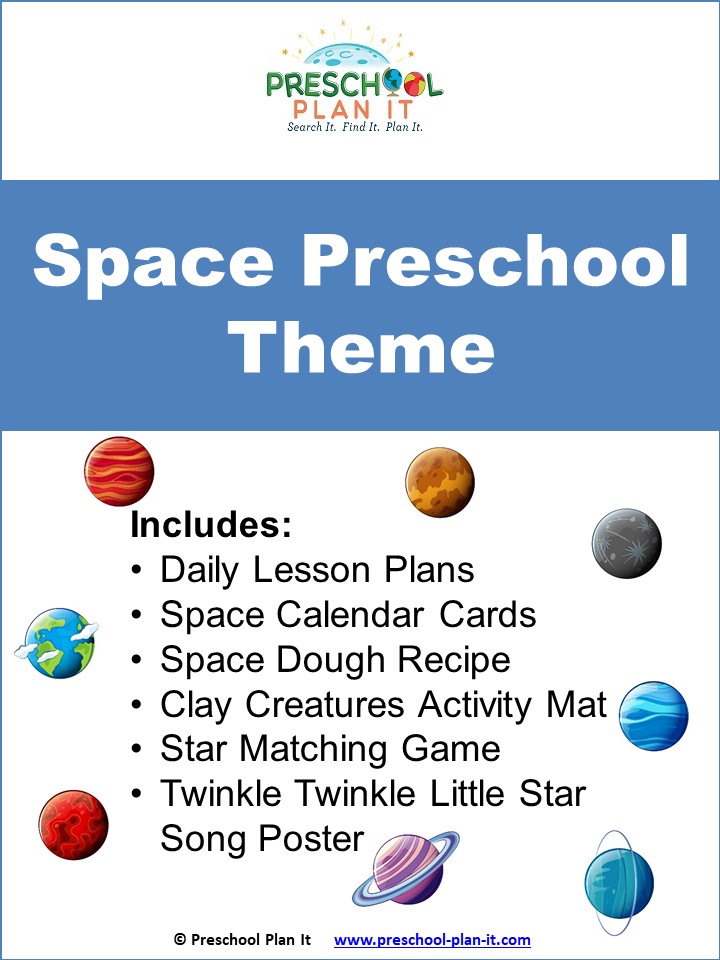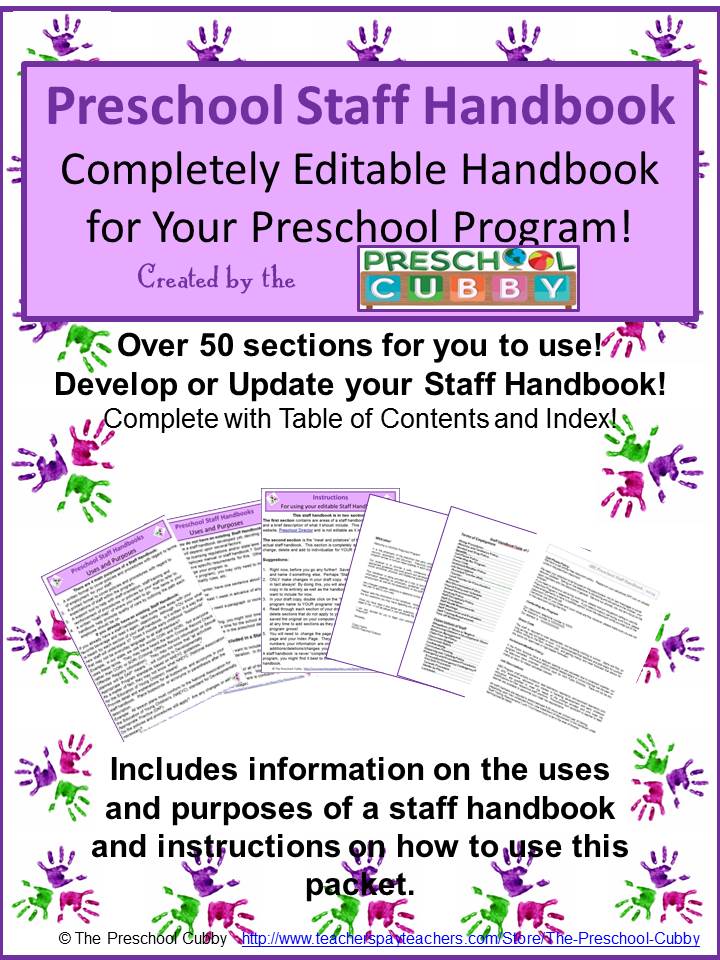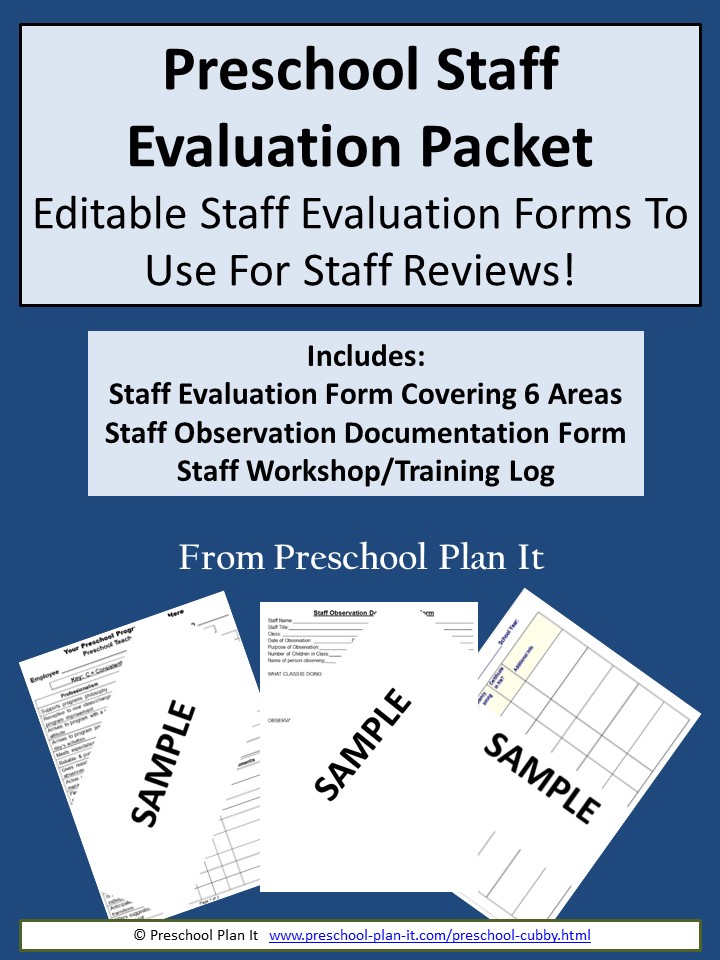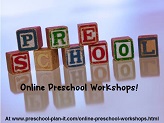- Theme Packs
- Themes
-
Preschool Planning
- Preschool Teachers

The Importance of Play- Part 2
Explaining What Children Learn During Preschool Play To ParentsWe’ve often heard it said that preschool play IS a child’s work. Many parents see their children playing at school in your interest centers and will ask, “When do they learn?”
As teachers, you know they are learning during this free choice time and you have a great opportunity to explain that learning to parents!
Let’s look at how preschool play helps children in all areas of development:
Fine Motor DevelopmentThe fine motor development of children’s small muscles in their fingers and hands are essential to success in activities such as cutting, writing, tying their own shoes and more. Play provides child-directed activities to work on fine motor development as they lace beads, manipulate play dough, dress dolls in the housekeeping center and lace or button dress up clothes in dramatic play.
Gross Motor Development
The development of children’s larger muscles are important for their success in participating in classroom activities that require body control such as walking from one classroom to another, up and down stair, running, throwing balls, climbing play structures and more.
Gross motor activities such as using a parachute, tossing balls (to each other and into a large basket), games that include jumping and stopping and then starting again (i.e. “Let’s jump 3 times. Now stop! Let’s jump 5 times.”) help children to develop their large muscle groups and learn to control them.
You might find my
Interest Center Posters
helpful for explaining play in the classroom
to parents!
Social-Emotional Development
Becoming part of a large group is pretty new for most preschoolers and it is harder than we sometimes give them credit for! Think of being at a wedding or other large function and “mingling” in the room with groups of people you don’t know very well. It takes time to become comfortable in this setting for us and even more so for children.
Preschool play is the most natural way for children to navigate through this area! They learn how to become a family in the housekeeping area, or work together to build a house with other children who like using blocks as much as they do. When they choose to play in an area that interests them, talking and cooperating with their peers becomes easier because they all have a common interest in that play area.
Language Development
Children use their language skills, problem solving skills and more while playing. They can use their language skills to explain to others about their ideas. They can use their imaginations and creativity. Play allows children time to think freely without an adult directed focus (“Now we are going to do ____.”)
Academic learning can also happen during play when the activities available are planned in advance by the teachers. Preschool Plan It's Themes are based on activities that take place in Interest Learning Centers. For example, in your Math Center, you might place a muffin tin (numbering each tin 1-12), a bowl of colored pom-poms and plastic tongs.
The children will pretend they are cooking as they use the tongs to place the correct number of pom-poms in each tin. This activity is helping to develop their fine motor skills (using the tongs), intellectual (cognitive) skills due to the number recognition, one-to-one correspondence as they count each pom-pom and gross motor skills when they carry and balance the muffin tin over to the housekeeping area to bake the Pom-Pom muffins in the oven.
In addition, they will be using their language skills to tell the other children what they are cooking, who they are cooking for, and other details of the baking extravaganza! Child-directed learning at its best!
Children do learn through preschool play. They learn skills that will last a lifetime!
Go to the Importance Of Play Article-Part 1
Go to Preschool Plan It's Teacher Timesaver Articles MAIN Page
Go to Preschool Plan It's Home Page
Hey there! Welcome to Preschool Plan It! I’m Cheryl, a preschool teacher of over 20 years.
I KNOW, I know, you spend hours of time developing your preschool themes, activities and preschool lesson plans each week. You are commited to planning preschool themes and activities that are engaging hands-on, interactive, fun AND meet the goal of supporting each child’s level of growth and development.
I am commited to providing you, the preschool teacher, with everything you need to develop preschool lesson plans and preschool activities for your classroom all in one place!
READ MORE
Join My Free Preschool Teacher Tips Newsletter
You’ll receive a weekly email with planning tips and teaching ideas.
You'll also receive (on the 1st of each month) a free theme starter pack with some printables and activity ideas to get you started planning a theme!Join Now and Get Your First Theme Right Away!
© Copyright 2010-2026 Preschool-Plan-It.com | All Rights Reserved | Privacy Policy & Disclaimer
- Preschool Teachers
